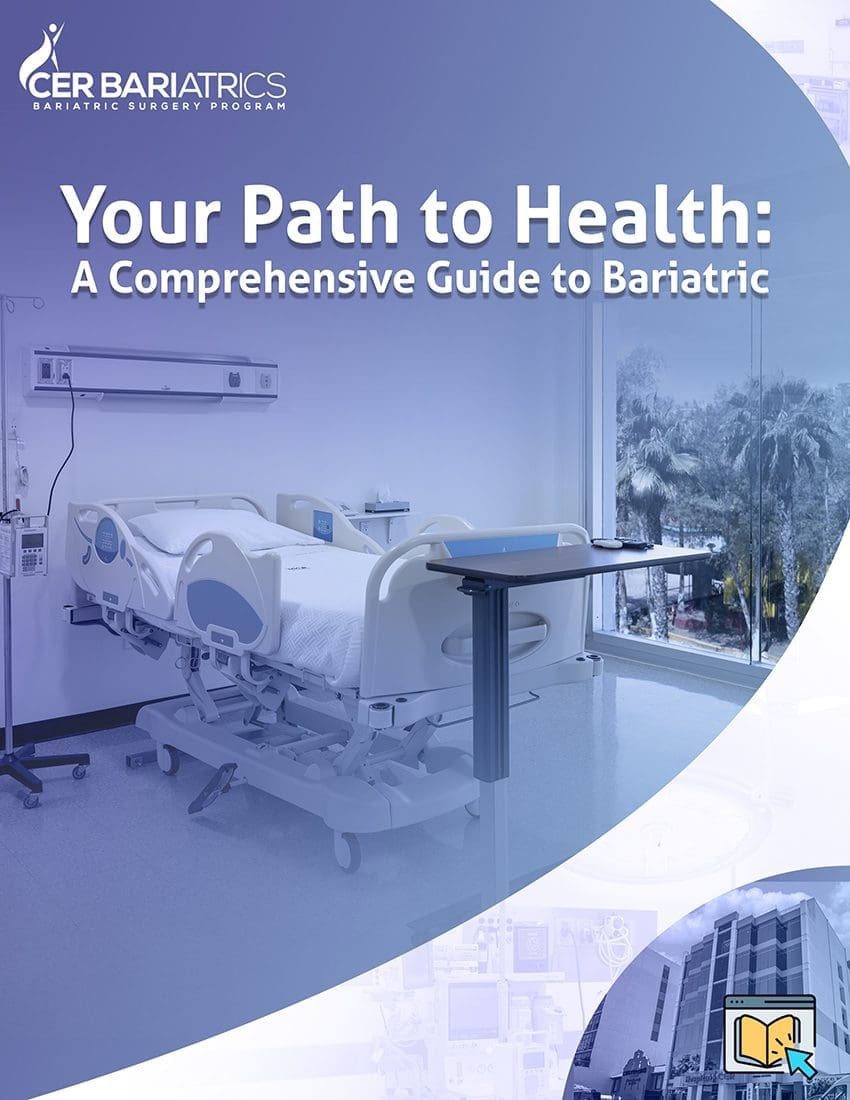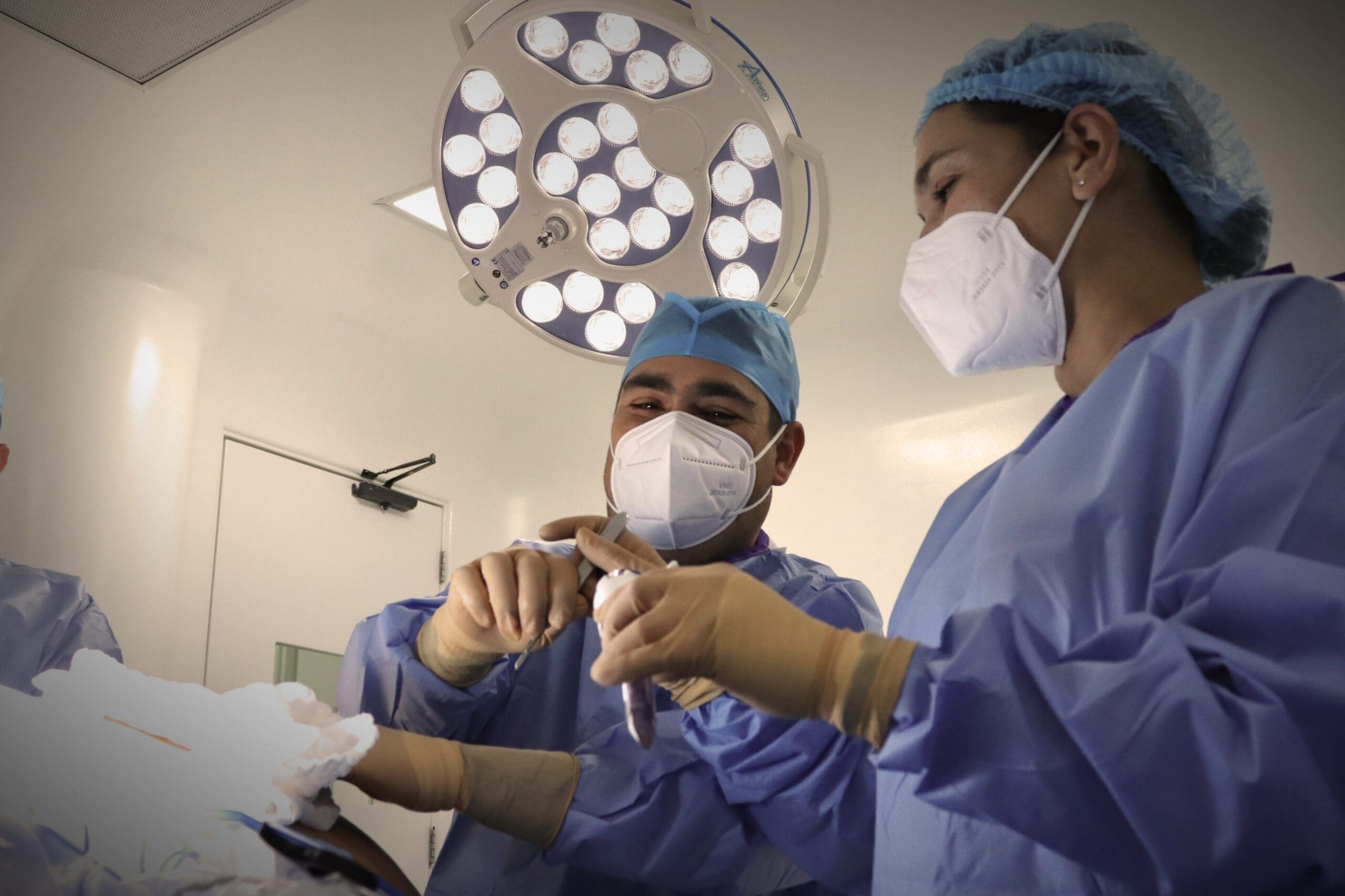Can I Live A Normal Life After Weight Loss Surgery?
Weight loss surgery, also known as bariatric or metabolic surgery, is often used to treat obesity. Obesity can lead to diseases that can be difficult to treat and is related to many other medical issues. Treatment for obesity goes beyond a quick diet or surgery. Bariatric surgery, apart from resulting in significant weight loss, can also help improve many obesity-related conditions.
Patients should expect a new lifestyle combining lots of healthy eating, exercise, and regular visits to healthcare experts. This approach will offer the best chance for the patient’s successful weight regain and medical problems. But this procedure is a significant operation that, in most cases should only be considered after trying to lose weight through a healthy diet and exercise.
There are different types of weight loss surgery; the most common are:
-
- Gastric band: This procedure consists of a band around the stomach so the patient will eat less.
-
- Gastric bypass: This process consists of joining the top part of the stomach to the small intestine, giving a sense of being full sooner and preventing the body from absorbing many calories from food.
-
- Sleeve gastrectomy: In this surgery, part of the stomach is removed, resulting in the patient being unable to eat as much as they could before and feeling full sooner.
All these procedures can lead to significant weight loss within a few years. Still, as with any other bariatric surgery, each has advantages and disadvantages, and it’s the patient’s responsibility to take care of themselves to ensure better and longer results after the procedure. If you are considering weight loss surgery, the first step you need to take is to speak to a surgeon about the different types available to help you decide which is your best option.
How Will Weight Loss Surgery Change My Life?

This question is ubiquitous among patients who are looking to undergo bariatric surgery. The answer won’t always ben’t same; we all know everybody is different, and the results this procedure has on the patient are tied to the life conditions they’re livingthey’ret. Loss surgery can have a significant impact in numerous aspects; having a ‘normal’ life ‘after the surgery mostly depends on how ‘normal’ is defined by the patient. But a short answer can be: you will have a new life.
Bariatric surgery can achieve dramatic weight loss, and even though it helps with obesity-related problems, it’s not a curate’s obesity on its own. For the patient to achieve this new life, they’ll need they’ll to make permanent lifestyle changes after surgery to avoid putting weight back on and preventing some diseases.
Following weight loss surgery, patients will be on a special diet provided by their bariatric surgery team. Most patients will start on a liquid diet for some weeks, then slowly begin to take soft foods, and once they’re ready, they’reoods. Drinking fluids after the surgery is critical, although it can be difficult. Patients are recommended to drink at least 64 ounces of fluids a day. And in addition to staying hydrated, they will need to focus on how much protein they take. They’re ingesting enough protein, which can lead to weakness and muscle loss, causing severe repercussions.
What to Do After Bariatric Surgery
After going through what may sound like extreme changes in their diet, the patient will move on to a healthier diet for life. So, as mentioned before, this is a commitment that requires a considerable amount of effort from the patient. If adjusting to this new lifestyle doesn’t sound daunting, trust us when we say that this is worth leaving all your old problems behind.
Studies have shown that losing even a small percentage of excess body fat reduces the risk of developing diabetes. And for patients who have already been diagnosed with this disease, weight loss can decrease dependency on medication. A healthy body weight is essential in preventing and treating diabetes. While weight loss surgery may not be a cure for this condition, research has proved that diabetic patients who choose bariatric surgery see an improvement in their blood sugar levels. Weight loss surgery can significantly help patients who cannot control their blood sugar with diet, medication, and exercise alone.
So, can the patient live an everyday life after weight loss surgery? Well, we firmly believe that they can live a better life. Like any other bariatric procedure, weight loss surgery requires a lot of responsibility and effort from the patient. It’s not the way out. Like many people tend to believe, maintaining a healthy lifestyle with a nutritious diet and an active life is essential.
Life after Bariatric Surgery

Weight loss surgery is a tool; it works if you work it. A bariatric surgeon won’t be with the patient all day to ensure they follow the rules after surgery. And what are the rules exactly? They are nothing. Their instructions are designed so the patient won’t regain their health and so they can live this new, better, and healthier life. These rules can start simple; for example, if the patient’s goal is to improve or resolve health conditions, they can focus on real aspirations that don’t concentrate on a number on a scale. Every significant change comes from setting the mind to it. Keep these goals as a reminder of why you make the choices you do every day as someone committed to improving your life.
So far, we’ve talked about weaveth importance of a healthy diet. But there are other steps patients’ mustpatients’o maintain weight loss. After bariatric surgery, patients often feel more energetic, and exercising frequently can help them recover faster. Each patient’s recopatient’sifferent and should always check with their surgeon before they start intense exercise. And, of course, exercise will also help keep weight loss off when people make a habit of it.
Rules for Futures Patients
Another rule for patients who have chosen to undergo this surgical procedure: they need to quit smoking and drinking. Most bariatric surgery centers will require patients to stop consuming all nicotine products before weight loss surgery. Nicotine use aggravates the body’s ability from the surgery and puts patients more at risk for multiple diseases. On the other hand, alcohol use after bariatric surgery can have serious consequences.”After surgery, alcohol is absorbed into the bloodstream more quickly, resulting in higher levels in the patient’s system.”
The following rule is temporary. Weight loss surgery can help patients become pregnant due to the changes in their health. But, for female patients who have pregnancy plans for the near future, it is recommended to wait for the procedure. This is because after going through weight loss surgery, they will have to avoid pregnancy for 12 to 18 months to reach their lowest possible weight and ensure that they have sufficient nutrition.
Taking vitamins is also an essential part of the journey. Bariatric experts often recommend taking a multivitamin, Vitamin D, Vitamin B12, Calcium, and Iron. Chewable vitamins are a great option, but some patients can take pills if tolerated. Patients who do not take vitamins every day can later suffer severe medical issues due to low vitamin and mineral levels.
Is Weight Loss Surgery Worth It?
If you find the rules and new habits for weight loss surgery overwhelming, remember that the procedure will improve your life and overall health. These changes are long-lasting but require commitment. Discuss any doubts with your bariatric expert at CER Hospital. Change can be scary, but it often brings great rewards. A healthy lifestyle is essential for everyone, not just weight loss surgery patients.
Get more information about weight loss surgery and make the best decision; we are happy to help you.
[quform id=”3″ name=”blog ” “an liv” an everyday life after bariatric surgery”]
Reference”
Life After Bariatric Surgery. (2021). ASMBS. https://asmbs.org/patients/life-after-bariatric-surgery
Weight Loss Surgery. (s. f.). NHS. https://www.nhs.uk/conditions/weight-loss-surgery/
Feeling stuck?
- Check Your Bariatric Surgery Eligibility Now!
Ready for a Healthier You? Review Your Bariatric Surgery Case Today!
Take the first step towards a healthier, happier you by reviewing your bariatric surgery case. Fill out our quick and easy Surgical Eligibility Form to see if you’re a candidate for life-changing weight loss surgery. Your journey to better health starts here!
Related Post
Learn how to kickstart your weight loss journey











